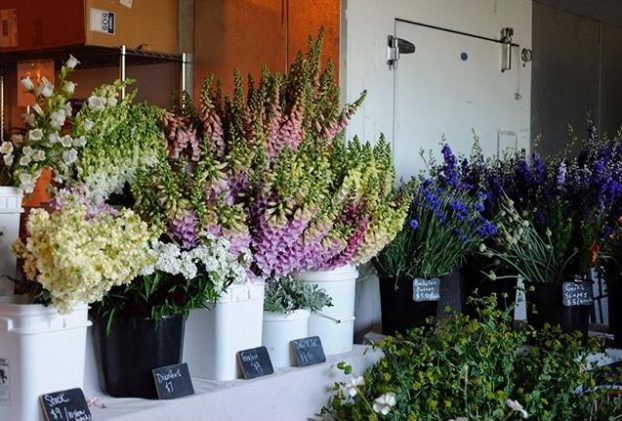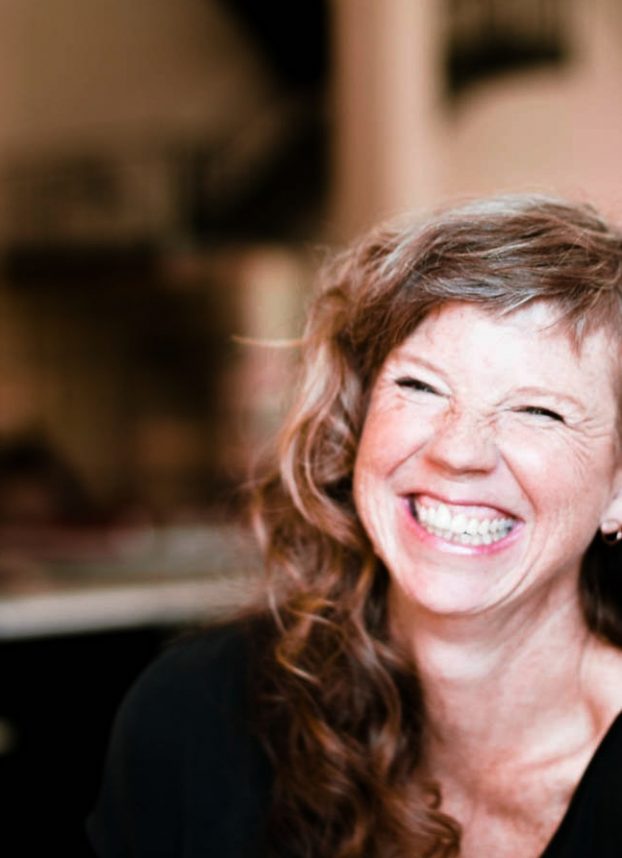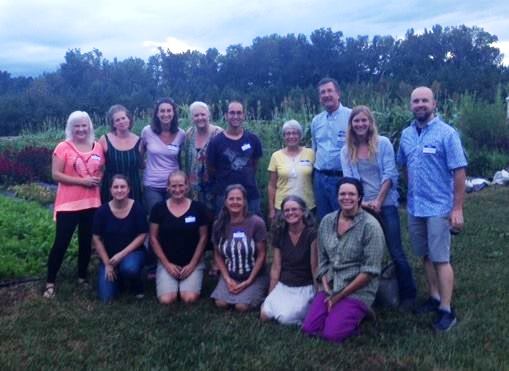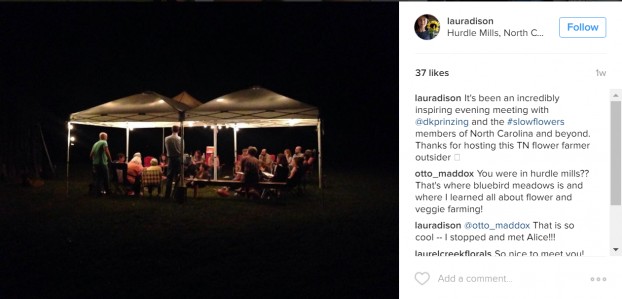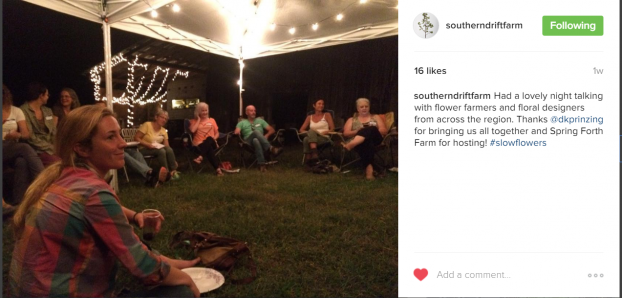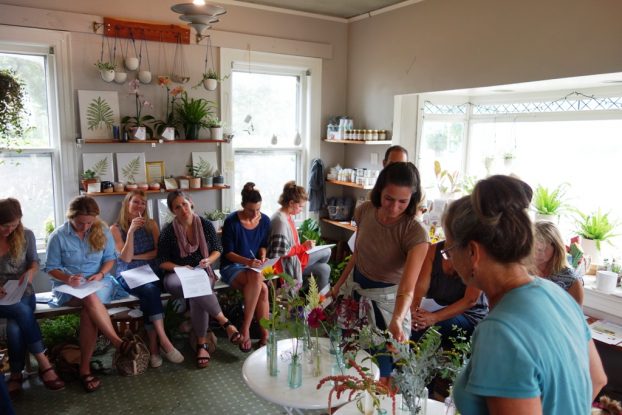Podcast: Play in new window | Download
Subscribe: Apple Podcasts | Podcast Index | RSS | More
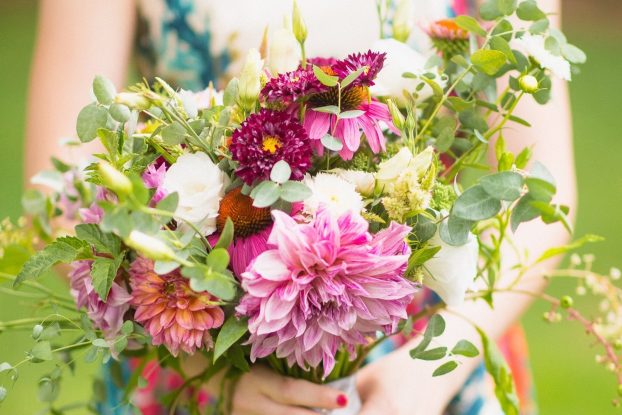
Local flowers grown and designed by Kelly Morrison, co-founder of Piedmont Wholesale Flowers. (c) Kissick Weddings
Many of you feel that pull — the desire to come together with like-minded Slow Flowers folks and create community, cooperation — and commerce — around local flowers. It’s a powerful urge, and I’ve been fortunate to observe and come alongside individuals all around N. American who are making something happen as a response to that pull.
Some of the ideas I’ve been tracking in my annual Slow Flowers Floral Insights and Industry Forecasts, since our first report in 2015, embody these themes. I just shared my thoughts about this with a group of Michigan flower farmers who are exploring a new wholesale model, so the timing is ideal given today’s podcast topic.
If you haven’t noticed, I’m here to tell you: New, Farmer-Driven Wholesale Hubs are meeting the growing demand for local, seasonal and sustainable flowers coast to coast.
On the heels of recent podcast episodes featuring an update about the Sonoma Flower Market’s second year and the new Twin Cities Flower Exchange’s launch (featured in Episode 290) and the episode celebrating the Seattle Wholesale Growers Market’s successful 6th Anniversary (featured in Episode 294), today I am delighted to introduce you to two emerging wholesale flower hubs, run by flower farmers and tailored to their floral customers. Both flower farmers are Slow Flowers members and I’m delighted to share their stories with you.
First, meet Kelly Morrison of Color Fields Farm and the new Piedmont Wholesale Flower Market, based in Durham, N.C. Our interview is followed by my recent conversation with Carly Jenkins of Killing Frost Farm and the Westside Flower Market in Missoula, Montanta.
These conversations really underscore the following themes I’ve been tracking in my annual forecasts:
- Cooperation and community – this idea needs no explanation other than to say, when flower farmers and floral designers convene, something explosive takes place – a harmonic convergence of nature and art, creativity and ingenuity. Wholesale hubs for local flowers foster that convergence.
- Micro regionalism – across North America, as farmers and florists form unique alliances for commerce, marketing and promotion, the net benefit means more local flowers available to more consumers.
- More farms selling direct – Flower farmers are increasingly taking power into their own hands to market their crops rather than abdicate to a wholesaler who may or may not represent their brands as they like.
And if you have any doubt about this cultural shift spreading far and wide, these two women’s stories will give you something exciting to consider, perhaps about your own marketplace.
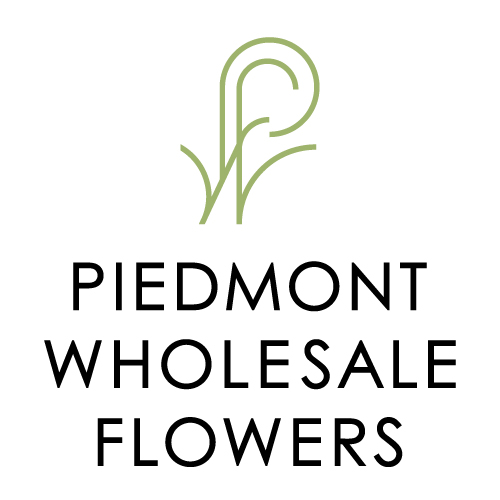 I met Kelly Morrison in person when I traveled to the Triangle NC area last September as a guest of Jonathan and Megan Leiss of Spring Forth Farm and Maggie Smith of Pine State Flowers, where we held a mini version of the Slow Flowers Creative Workshop and had a blast designing with gorgeous locally-grown flowers.
I met Kelly Morrison in person when I traveled to the Triangle NC area last September as a guest of Jonathan and Megan Leiss of Spring Forth Farm and Maggie Smith of Pine State Flowers, where we held a mini version of the Slow Flowers Creative Workshop and had a blast designing with gorgeous locally-grown flowers.
So it has been wonderful to correspond with Kelly about what’s happened since — and that is the debut of a local wholesale flower cooperative instigated by Kelly and two other flower farmers, Jillian Mickens of Open Door Farm and Katy Thelen of Happy as a Coneflower Farm.
Here is a little more about Kelly: A first generation farmer, Kelly comes from a long line of southern gardeners going back as far as anyone can remember. Plants and their stories are passed down in her family like heirloom jewelry or antique furniture. They are something to be shared. They have a history and a story to tell. They are intimately tied to their season. This connection to time and place drives Kelly’s work as both a farmer and a designer. Her goal is to bring the story and seasonality of flowers to her clients’ special event and also to their lives.
READ MORE…









